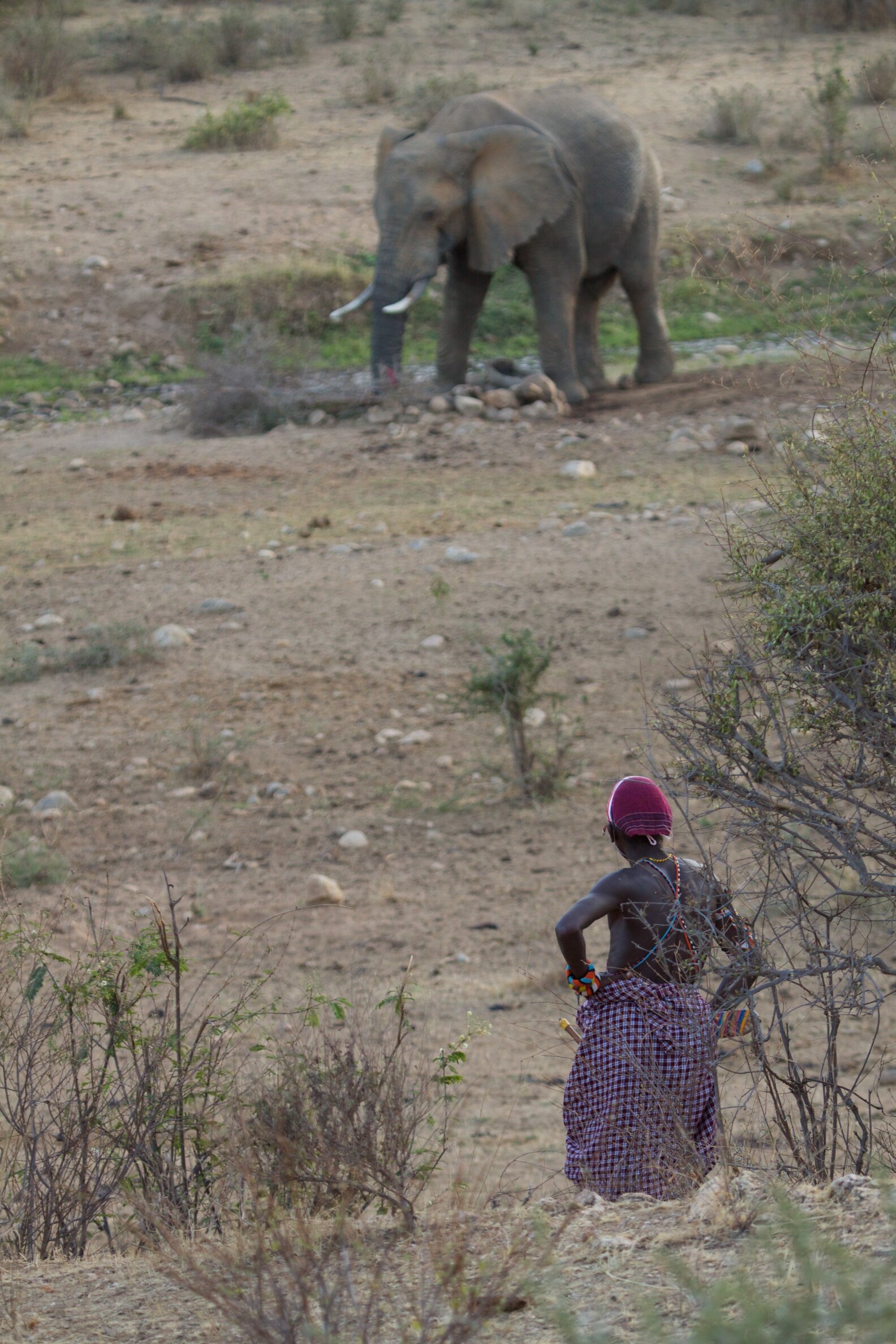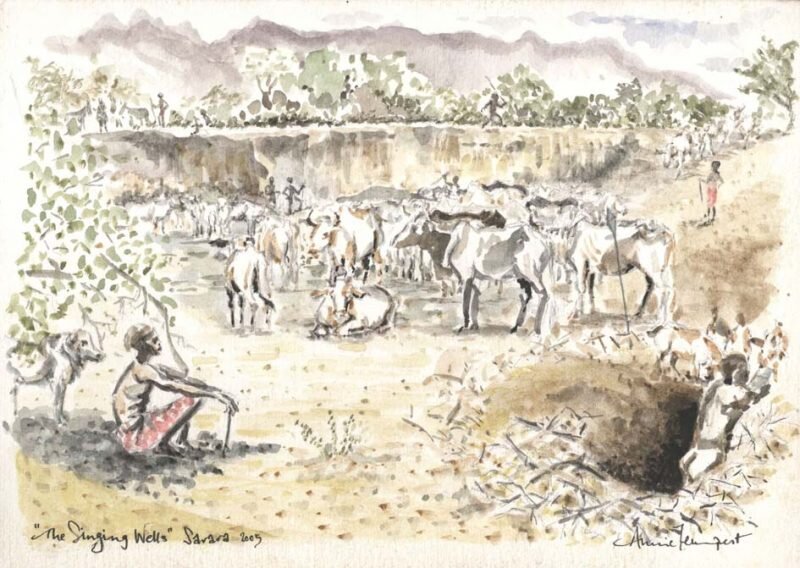Why elephants prefer to drink the water from wells?
With the ongoing drought in Northern Kenya and the dropping water table, the wells in Namunyak Conservancy and surrounding areas are getting dangerously deep.
Last week, Reteti rescued an elephant calf from well in a neighbouring conservancy and we thought to raise the topic of why the elephants prefer water from the wells.
Context to the situation
For a great portion of Northern Kenya, people and wildlife live side by side, sharing grasslands, forests, and water on community-owned land - as is the case here in Namunyak Conservancy.
During the dry season the elephants smell water under ground and dig with their tusks to reach it, followed by nomad Samburu pastoralists who dig further in to the dried out river bed to find water for themselves and their cattle.
If the dry season is particularly harsh like it is at the moment, the wells get very deep.
Do we create other water sources?
We do, in fact, gravity-feed water from a spring into watering holes, but the elephants and the Samburu pastoralists prefer the water from the wells.
The sand acts as a natural filter for the water, which helps with the prevention of waterborne diseases, yet leaves it full of incredible minerals such as calcium, magnesium, and potassium.
How do the wells work?
In the morning these wells are busy with the organised chaos of cattle bells, goats, camels, donkeys, and people. In the evening it’s the wildlife’s turn to drink. It's a completely unique coexistence and silent understanding between man and beast.
When the elephants come to drink they sometimes lose their footing, resulting in small calves toppling in and not being able to get out.
The herd will try to get the calf out throughout the night and we have witnessed female herds chasing away hyenas. But by the time the sun begins to rise the next morning, the cattle and people are starting to make their way to the wells for their turn at the deep watering holes. This in turn scatters the elephant who moves on, leaving the baby behind.
Sharing of Land
The traditional way of collecting water from the wells is a way of survival for the Samburu which has been part of their culture for hundreds of years and is deeply embedded in to their traditions.
The Samburu sing for their cattle as they collect water from the wells. Each pastoralist sings a different song to their herd of cattle.
Out of respect for their tradition, we also do not photograph the "Singing Wells". We believe that visitors can wholeheartedly experience the wells, when they put their cameras down and be fully present in experiencing this ancient tradition.
Our Plan
The Samburu and the elephants have co-existed for many years, and to protect their wells, their traditions and also to make the wells safer for the elephants, we have decided to take action.
More to follow tomorrow, on World Elephant Day.




